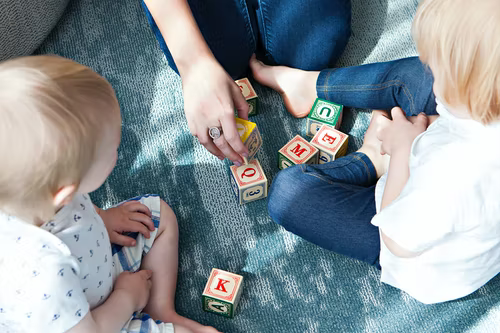How to Help Children With Math – An Ultimate Guide for Parents
Math is a fundamental component of children’s daily life with real-life math applications. It helps kids develop critical thinking skills, independence, problem-solving abilities, and self-esteem. But sometimes, getting kids to learn the subject is easier said than done.
So, if you are a parent whose child has difficulty understanding math, you don’t need to worry. There are several math help ideas with high success rates. This ultimate guide for parents will uncover strategies to help kids understand math better.
1. Hire a math tutor
Whether they missed the topic in school or just want to learn something new, any student can benefit from working with a math tutor. The tutor will go over materials with the child to help them consolidate concepts and make connections between them. Brighterly is one such online learning platform with teachers dedicated to helping kids learn math.
Hiring a tutor provides guidance and personalized study strategies to help students excel in math and throughout their academic careers. Friendly ones even boost students’ self-esteem and help them improve their study habits. It is also possible to discover areas of weakness and work on strengthening them with the aid of a math tutor.
2. Create a positive learning environment
Mastering any new idea or skill is challenging, especially when it takes too long. When it comes to math, kids who have difficulty learning the subject will dislike it. They may gradually lose the zeal to learn math with time, making it harder to keep them interested in learning and improving.
Make the math lessons as easygoing as possible. Use positive words for kids and avoid using terms like struggling, failing, etc., to describe the children’s progress. These words can create a sense of negativity within the child and have them feel less of themselves.
3. Use Models and Learning Aids
Every math lesson should begin with a show-and-tell. Students learn best when they visualize how to do things. Consider using interactive whiteboard animations and movies to demonstrate and explain specific arithmetic topics.
Visual learners benefit from using models and other teaching aids like toys and videos when confronted with a challenging math concept. You can also allow older pupils to use learning tools such as calculators, mathematical sets, graphs, pictures, and protractors to understand math better.
4. Tell number-related stories
Storytelling is a great way to relate to real-world situations and capture children’s imagination. When teaching math, use scenarios in stories to help students realize how to use math in the real world. Incorporating real-world math applications into your teaching is a great way to help kids grasp complex concepts.
5. Use math worksheets
There are a lot of benefits to using math worksheets, mainly when teaching young children’s complex concepts like multiplication and division. These worksheets keep students engaged in their studies and help them retain and master topics they learned in class.
For students to be successful in math, they must first master the fundamentals of the subject. Math worksheets first introduce kids to the concept using fun and exciting hands-on activities before proceeding to the complex aspects. Tutors at math learning startups like Brighterly use those worksheets because kids visualize patterns and quantitative reasoning by working through the exercises.
6. Listen to your kids
Inquire about what your kids think about a particular math concept and listen to them explain their views. People learn in different ways, and talking about the subject is one of those ways. Often, the kids may become more comfortable about a math topic after conveying their thoughts to someone else.
Before giving pupils a math task, have them come up with a list of possible approaches to solve similar problems. Once your kids give you an answer, have them describe how they arrived at their math solution. Encourage pupils to collaborate respectfully to come up with new ideas.
7. Provide feedback on their progress
Regularly checking in with your kids to see how they are progressing is necessary. The best math tutors give kids feedback because it is critical for their development.
Describe to your kids how well they did on a particular activity and provide suggestions on how they might develop and expand their abilities. When giving feedback, keep it task-specific so that your child can know exactly how they performed and where they may improve for the next time.
8. Talk about math
When talking about math with kids, it does not have to be a debate over which equation better represents a concept to talk about math. Math may be as easy as making educated guesses about the length and sizes of things.
Math is vital for young children, who need to begin viewing it as a part of the real world. When the chance comes, find methods to integrate the subject and its ideas into conversations with your child. But don’t shoehorn math into every discussion; make it subtle and appropriate.
9. Encourage kids to practice math constantly
The more your child practices math, the better they become. Mathematical questions come in many forms, including riddles, word problems, brainteasers, geometry, and formulas. To push through those topics, children need to spend time rehashing what they’ve learned.
Your kids will be able to answer math problems more quickly if they practice constantly. The more they test their limits and increase their knowledge, the easier it will be to learn more advanced subjects.
Conclusion
Math can be a challenging subject, so it is a no-brainer why parents and teachers strive to bring up new methods to help kids be better at math. Following the strategies in this article will give you new perspectives on how to help children with math. Feel free to tweak them according to your child’s needs and skill level.




